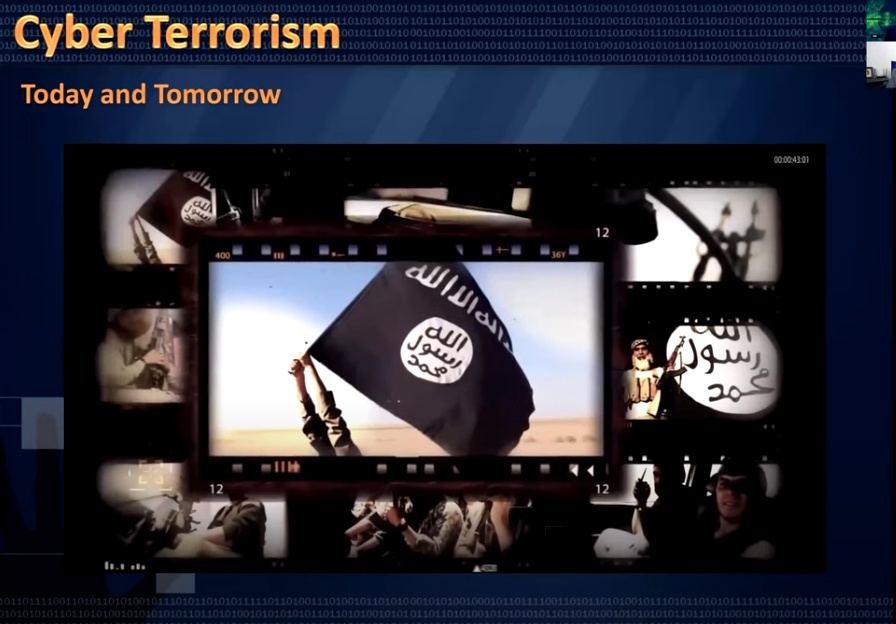
Terrorism in its broader definition is not a new phenomenon, it is dating back to the kingdom of Sargon of Akkad, Zealots against the Roman Empire, the Sicarii, and the Assassins. Although terrorism is not based mainly on specific ideology or religion, radical Islamic terrorism in the 21st century took a new turn due to many reasons. The latest call, which spread all over the world using the 21st technologies to establish the so-called “Caliphate” Islamic State of Iraq and Levant (ISIL) or Da’esh, is based on the old narrative that can be traced back to the old history of conflicts in the Islamic World. However, there is a difference between terrorist use of the internet and Cyberterrorism which some researchers use interchangeably.
Mohamed El-Guindy will explain the term in relation to history, political science, and cybersecurity domains and will shed the light on the issues facing governments and the private sector in today’s economy and future threats that may arise when terrorism will be able to utilize complicated cyberspace capabilities.
With the proliferation of social media platforms, terrorists are able to reach millions of people around the world which poses more risk on the national security level and requires different countermeasures involving public-private partnerships. From his experience with the UNODC Terrorism Prevention Branch, El-Guindy will offer insights on different cases related to terrorism use of the internet and how law enforcement and intelligence responded to the threat.
